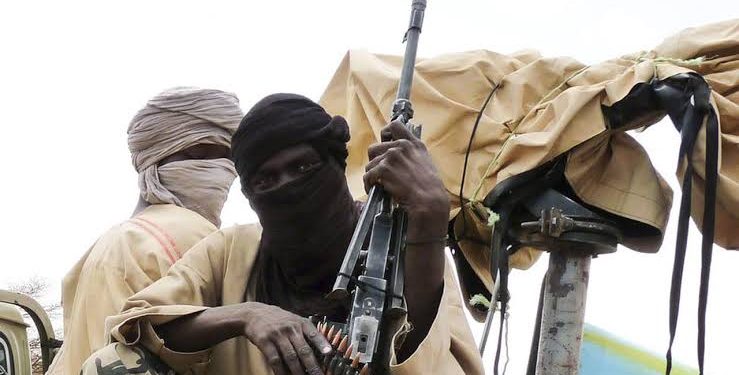DAILY GIST reported that the Zamfara State Government had asked residents to carry guns to defend themselves against bandits and other criminals terrorising the state.
This directive was contained in a statement issued by Ibrahim Dosara, the state’s commissioner for information.
Dosara said the state had also asked the commissioner of police to issue gun licences to people who were qualified and willing to use guns.
The directive came amidst continued abductions and attacks by terrorists in the state.
Reacting a day after the directive, General Lucky Irabor, Chief of Defence Staff (CDS), condemned the line of action.
Irabor said the army was in the armed forces and that other security agencies were ably equipped to protect every part of the country and did not need civilians to take up arms.
He said, “I believe that it is not the right way to go. Of course, there are actions that members of the security agencies and the armed forces, in particular, the police and other security agencies, are doing to address insecurity in Zamfara and environs.
“Beyond that, of course, there are other legal issues, other issues of governance, issues that the government could have addressed using the instrumentality of the law that is available for him to bring greater peace and security.”
WHAT THE LAW SAYS
Section 33 of the 1999 constitution as amended, a section that establishes every citizen’s right to life, addresses the use of firearms by civilians.
In subsection 2 of the aforementioned section, the constitution says:
A person shall not be regarded as having been deprived of his life in contravention of this section, if he dies as a result of the use, to such extent and in such circumstances as are permitted by law, of such force as is reasonably necessary –
(a) for the defence of any person from unlawful violence or for the defence of property:
(b) in order to effect a lawful arrest or to prevent the escape of a person lawfully detained; or
(c) for the purpose of suppressing a riot, insurrection or mutiny.
Section 32 of the Nigerian Criminal Code Act also addresses justification and excuse as legal defences.
In subsections 3 and 4, it says:
A person is not criminally responsible for an act or omission if he does or omits to do the act under any of the following circumstances‐
(3) when the act is reasonably necessary in order to resist actual and unlawful violence threatened to him, or to another person in his presence;
(4) when he does or omits to do the act in order to save himself from immediate death or grievous harm threatened to be inflicted upon him by some person actually present and in a position to execute the threats, and believing himself to be unable otherwise to escape the carrying of the threats into execution.









